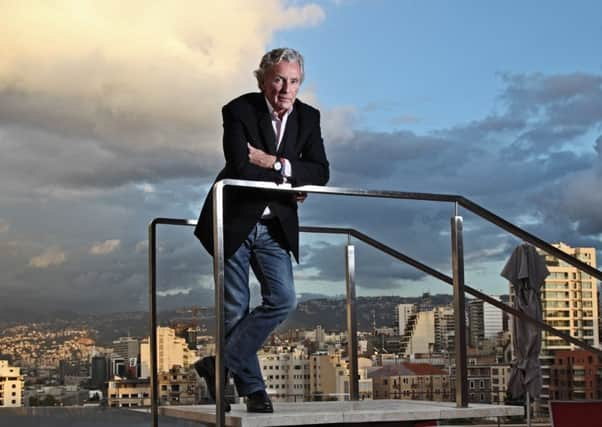Stephen Jardine: International hotelier says '˜Scotland is booming'


Earlier this week, Scotland got a ringing endorsement onstage at Glasgow’s SEC. It wasn’t from a music megastar but it did come from a big name if your business is hospitality.
Hotelier Gordon Campbell Gray was born in Scotland but has spent his life creating luxury properties from the Caribbean to Beirut via One Aldwych in London. Now he is turning his attention closer to home with the renovation of The Machrie Hotel on Islay. Alongside that, this giant of the hospitality industry also has other Scottish projects in the pipeline.
Advertisement
Hide AdAdvertisement
Hide AdSo why is a man who has made his reputation running glamorous properties worldwide now returning to his roots? “Scotland is booming. So many good things are happening here and I want to be part of it,” he told delegates to the Scottish Tourism Alliance conference. Endorsements like that are just what we need at a time like this.
The hospitality industry has made huge strides in Scotland in recent years and tourism now contributes around £6 billion of GDP to the Scottish economy. Tourism employment has grown 12 per cent since 2011 and more than 200,000 people now work in the sector.
However Brexit is creating a climate of uncertainty. The weak pound is attractive to visitors but there are question marks about how many EU citizens will choose to stay and work in our hotels and restaurants after next March. Along with rising costs, that inevitably leads to caution when it comes to development and expansion.
Peter Martin from industry analysts CGA told the conference there was a dampening in investment in the sector and that is hardly surprising. According to his figures, 12,000 new restaurants opened in the UK in the past five years. Only 4,000 of them are still operating today. It’s a high stakes game where margin and the correct business model are everything, as Prezzo, Jamie’s Italian and Byron Burgers have discovered to their cost. Locked into one way of operating, they’ve struggled to absorb rising rates and higher food and labour costs.
Tastes are also changing. Just a year ago, 46 per cent of consumers thought barbeque was the key food trend. In 12 months that has fallen to just 10 per cent. Conversely, a year ago a quarter of consumers thought vegan food was the big thing. That figure has now risen to nearly 70 per cent. In just a year we’ve swung from indulgent to healthy.
For those able to adapt and keep up, the rewards await but if you are just about to open a business specialising in nothing but long, slow-cooked barbequed pork, well, good luck with that. According to Graeme Roy, from the Fraser of Allander Institute, adaptability is key. “Being able to innovate and be flexible in your response to changes in the economy is absolutely crucial,” he told the conference.
Part of that is looking for new opportunities. Staff from the Edinburgh International Conference Centre will soon head to China on a mission to try to attract convention business to the capital. The first direct flight from Beijing to Edinburgh begins in June and could be the start of something big for Scottish tourism. Only 7 per cent of Chinese people have passports at the moment but that is still 97 million people and the figure is expected to double by 2020.
Food and drink tourism is seen as another way to attract a new kind of visitor to Scotland and a national strategy is now being devised to make the most of that opportunity. There are challenges ahead and initial feedback this year from the industry suggests the season is off to a tentative start. However our landscape and heritage will always give us a competitive advantage. As long as we continue to innovate and evolve and don’t become complacent, tourism could shape our future as well as reflect our past.
